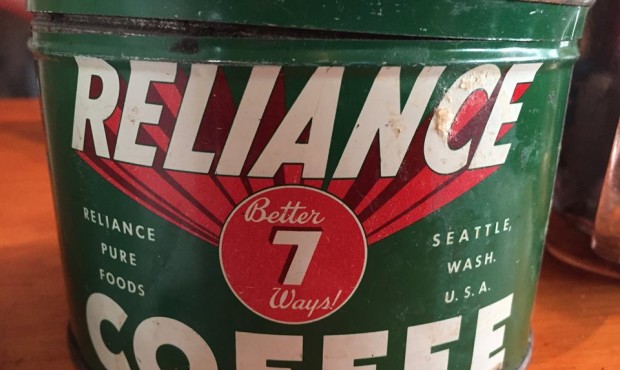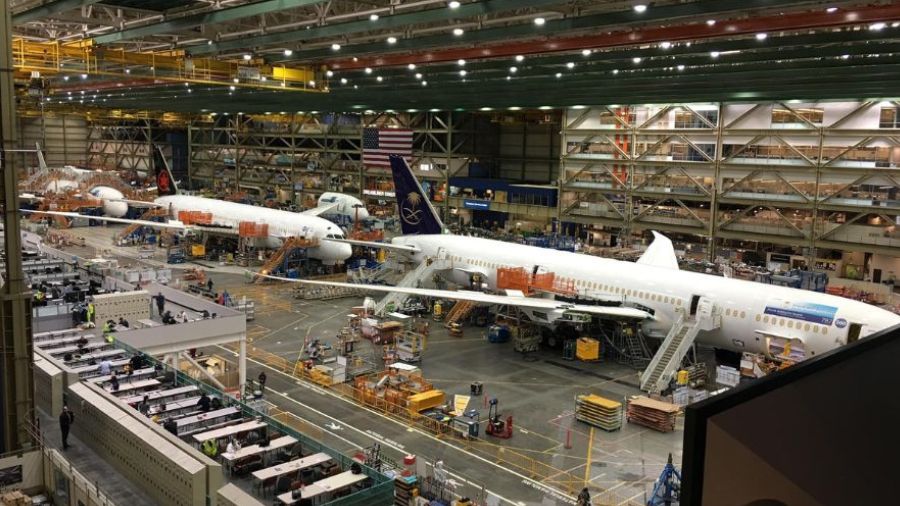Not all Seattle coffee brands took the path of world domination
Apr 26, 2017, 8:33 AM | Updated: 12:46 pm
Last month, Howard Schultz attended his final Starbucks shareholder meeting as CEO, and Kevin Johnson officially took over the company just a few weeks ago.
RELATED: Starbucks barista has meltdown over Unicorn Frappuccino
The history of Starbucks, of course, is an off-the-chart example of a success story. Excepting a stumble here and there, the company has almost singlehandedly reinvented how coffee is consumed – fetishized? – here in Seattle, and around the world.
But long before there was even the first disputed Starbucks location in downtown Seattle, there were other local coffee brands that were favorites with caffeine-craving, bleary-eyed consumers around Puget Sound. While none took the path to worldwide domination, many still made their own regional impact with their cafes and their vacuum-packed cans of ground coffee.
Gold Shield Coffee: “The Coffee That’s Always Good”
Gold Shield Coffee was roasted by Schwabacher Brothers, which was a big local retailer (and then wholesaler) with operations in Seattle from 1869 to the 1950s. Gold Shield was eventually sold to Crescent Manufacturing Company, the old Seattle spice purveyor, and was then phased out in the early 1970s. There are still “ghost signs” for Gold Shield if you know where to look, including the wall of a brick building along Fremont Avenue North at North 40th Street. Gold Shield Coffee also sponsored musical programs on KIRO back in the 1930s and 1940s.
Manning’s Coffee: “The Acknowledged Quality Coffee Stores of the Pacific Coast”
Beginning in the 1920s, Manning’s Coffee was sold from Manning’s Cafeteria locations up and down the West Coast. What became the Manning’s chain began with a single store in Seattle the 1880s. Manning’s moved to Pike Place Market sometime around 1908, in the space now occupied by Lowell’s. From that single location, Manning’s expanded to 10 stores in Seattle by 1929, and additional cafeterias all the way south to Southern California and east to Spokane. Even after most of the cafeterias were closed, Manning’s Coffee was still sold in local grocery stores until sometime in the 1970s. Heck, given the dispute over the first Starbucks location, coffee history purists may be able to make the argument that Manning’s is the original “Pike Place Roast.”
Reliance Coffee: “Better 7 Ways”
Reliance Coffee was a Seattle-based house brand for independent grocery stores. Independent stores carried all kinds of Reliance products from the 1930s to the early 1950s. Reliance Coffee’s slogan was “Better 7 Ways,” but it’s not clear what this meant, exactly. If you know or remember, please share in the comments section.
Corona Coffee: “The Coffee With The Good Flavor”
Corona Coffee was roasted locally by Seattle’s Commercial Importing Company. Corona was first available here around 1900 and appears to have faded away sometime in the 1940s.
Seattle coffee still brewing strong
In addition to these once-famous coffee brands that have disappeared from cafes and grocers’ shelves, there is one local brand dating all the way back to 1898 that’s still in business.
Bargreen’s Coffee
Bargreen’s Coffee was founded 118 years ago in Everett by Chicago transplant Sam Bargreen. Sam’s 72-year old grandson Howie Bargreen runs the company these days. Bargreen’s roasts at their headquarters on Rucker, in Everett, and sells mostly to independent grocery store sales and a few QFC locations, and operates a handful of coffee stands.
RELATED: Starbucks to open cafe in UW’s Suzzallo Library
Howie Bargreen says that even though Bargreen’s has remained a small company, he appreciates what Howard Schultz and Starbucks have done to reshape and reinvent the coffee industry.
“When Howard Schultz came along, he really did make coffee into more of a perfume,” Bargreen said. “We were kind of selling deodorant, all us coffee guys all over the country, and he made it a perfume. You know, he put the sizzle into it.
“And that’s been good for all the coffee guys,” Bargreen added.
Howie Bargreen says he doesn’t regret that his family’s company didn’t go the Starbucks mega-expansion route. He says the coffee business is like the liquor business: some customers want to patronize dive bars, some customers want all the trappings of a fancy cocktail lounge.
“You kind of find the customers that fit you,” Bargreen said. “Of course, once in awhile there’s a superstar like Howard Schultz, but all of us other coffee guys just have to be what we are, and then try to find customers that fit our style, I think.”
And a distinctive style is also something that Bargreen says coffee in the Northwest has had for more than a century.
“The (soft) water here [low in mineral content], I think, makes the coffee sweet and taste good,” Bargreen said, compared to other parts of the United States. Though, he says, the high pressure of espresso machines tends to wipe out the flavor advantages of soft water.
In addition to the naturally soft water, Bargreen theorizes that the prevalence of Scandinavians and other northern European settlers in the Northwest made black coffee a more popular choice here.
“I think the difference is the East Coast was always the place where, (when) you get your coffee and if you wanted it black, you had to ask for it, otherwise they’d put cream in it automatically,” Bargreen said. “But we always said it was because they used such poor quality coffee back on the East Coast.”
RELATED: Everett officials consider dress code for bikini baristas
Bargreen’s may still be a small business, but they’ve adapted to all kinds of 21st-century changes in the coffee industry. For instance, Howie Bargreen says that a few of Snohomish County’s ‘bikini barista’ establishments buy their beans from his company.
But don’t those often-infamous places get a bad rap for focusing their attention on anything but the quality of their beverages?
“I have no idea, in general,” Bargreen said. “But I think with the specific ones I know, they take as much care with coffee as they do with all the other stuff they have to do.”




















